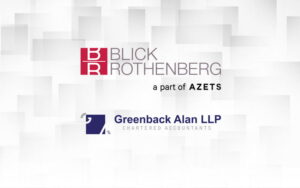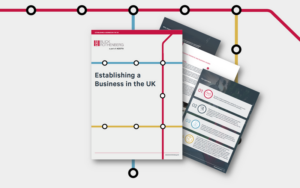
Spring Statement 2025 – Live Reaction
Instant reaction from our team of experts following today’s Spring Statement announcement from Chancellor Rachel Reeves
26 March 2025
Instant reaction from our team of experts
Roger Holman, Private Client Partner
Are Rachel’s ‘Fiscal Rules’ just austerity by another name? Apparently working people paid for Liz Truss’ Mini Budget – but aren’t those same working people paying for Rachel Reeves and her NIC hike?
Sadly, Ms Reeves is once again conflating tax avoidance and tax evasion, using the very different terms interchangeably in her speech – does this demonstrate more misunderstanding of our tax system?
Talking to a Kings Counsel (KC) last night, there is little or no point in going for criminal conviction for tax fraud – the burden of proof is simply too high. HMRC should just go for civil cases to allow them to collect tax where they actually find fraud, if only they could actually find the fraud in the first place.
The Litigation and Settlement Strategy (LSS) is a complete set of handcuffs for HMRC as they can no longer enter into sensible negotiations to speed up collection of tax. Enquiries can be dragged on for many years before they even get to first tier tribunals, and then another long time before finally being concluded one way or the other. If they have to pursue every penny of tax is stops them collecting any tax and means they lose cases that they shouldn’t even take. Had they done a deal they would have collected tax and not paid hundreds of thousands in legal fees.
Genevieve Morris, Head of Corporate Tax
Does the Chancellor really not realise that it is working people that are paying for the employers NIC rise? That is a very naïve approach.
Cuts, cuts, cuts! Not growth, growth, growth!
Reeves can insist that working people are not paying for NIC rises, but I ask you to show me an employer in the UK that is not /will not be critically reviewing their costs of employment and making decisions on headcount/recruitment as a result. It’s long been known that if you increase the costs on a business, they will increase prices and/or make cost reductions. All in all, the £500 average that a household is going to be better off under this Government isn’t going to go far once we’re paying £50 for a pint of milk!
Robert Salter, Director
It is disappointing that Ms Reeves appears to believe her policies are laying the foundation for economic growth and supporting the position of British workers, whereas the reality of her increase in the employer’s NIC from next week will almost certainly increase unemployment and inflation – both taxes on ‘regular workers’.
Working people first? Ms Reeves claims to be putting working people first. As such, it is a shame, that she doesn’t realise that by keeping her significant rise in employer’s NIC in place, she will actually undermine the availability of jobs for working people, particularly those younger individuals coming into the job market for the first time.
Ms Reeves’s ambitions for tackling tax fraud are the type of policy which every chancellor in the last 30 years has announced. However, the reality is that it is very difficult to tackle tax fraud in a valid, coherent manner and obtain any meaningful improvement in this area without significant investment in HMRC staff and – in effect – proper pay for HMRC officials. Sadly, HMRC have previously advised that 1/3rd of their staff are on the National Minimum Wage and it should therefore be no surprise that the performance of HMRC continues to disappoint.
Ms Reeves’s focus on ‘tearing down blockers’ in planning and economic development appears to be ill-thought out. After all, the Government’s planned introduction in ‘day one’ employment rights for all employees – which is due to come into effect shortly – is exactly the type of administrative burden on employers which actually risks increasing their burden and make the UK a less attractive location for growth.
If the Government is keen to grow the British economy over the next 10 years – and that is clearly a very worthwhile aim – it should actually consider issues such re-joining the EU (or at least the European Economic Area (EEA), which is probably more achievable in the short term).
Andrew Sanford, Audit Partner
Litter: The Local Government Association in 2024 stated that Councils spend around £1 billion per year dealing with littering. Sobering when comparing to cuts in the welfare budget.
The Spring Statement did not address at all the biggest elephant in the room – our population is aging and an increasing dependency on resources that are finite. Profound reorganisation of the health and welfare system is required, not just tinkering around the edges.
In a game of Budget / Spring Statement bingo, clamping down on tax evasion always scores highly and it was no different this time round.
Fiona Fernie, Partner
Why does she think she’s doing more than any previous government? The clamp down on tax evasion has been going on for years with HMRC receiving ever increasing powers but the lack of personnel and training still hampers their ability to collect – along with the “disappearance” of various promoters of such schemes.
If the 15% cut in admin spend for Government departments includes HMRC then their service is only likely to get worse than it already is when the Government needs to collect funds. Their attempts at AI have already shown that it is pretty ineffective in HMRC.
Simon Gleeson, Partner
The Chancellor isn’t addressing the real challenges of the working population. The pack of cards still stacked the same, the Chancellor still not accepting blame and hundreds of thousands of jobs projected to be lost due to changes in IHT, Employers NIC and Business Rates.
The return on capital investments takes time to impact growth: Investment in public infrastructure takes many years to provide a return. Talk of growth today seemed funded by hope and rhetoric rather than substance and game-changing investment. Global uncertainty isn’t a new challenge and sticking to fiscal rules fuels austerity. The OBR revised forecast from 2% to 1% is a disappointing headline number.
£40bn in tax raises – the largest any chancellor has made since Norman Lamont in 1993, and it’s clear from today’s news that the Chancellor is now selling on futures instead of acknowledging these policies will stifle UK job creation and growth. 2030 feels a long way away under these stifling fiscal rules.
Heather Powell, Partner and Head of Property & Construction
£2bn of capital expenditure a year to drive growth and productivity – but the Chancellor has missed a major opportunity to increase investment by the private sector by not increasing the maximum interest a corporate group can claim as a tax deduction every year. The current £2m threshold was imposed when the BOE base rate was 0.25% – rates are currently 4.5% – businesses who are investing in expanding their businesses and UK Infrastructure should be allowed to deduct the cost of debt funding investment of at least £10m a year.
GDP Growth – ranging from 1.9% to 1.7%… still significantly below the current and forecast inflation rates, so are we going backwards?
Defence Spending rising – but how much of that spend is being retained in UK Businesses and how much is going back to US or parent companies elsewhere in the world?
Mandatory housing targets, development of grey land… great but no one is going to build unless they know someone can buy the homes – be they a family, or a provider of affordable housing. Mortgage rates need to fall, confidence increase, and funding for social/affordable housing increase before this will happen.
Growth, Growth, Growth is top the Chancellor’s agenda, so it is very disappointing that she has done nothing about the restriction on the interest deduction that a corporate group can claim when calculating their Corporation Tax liability. The cap of £2,000,000, introduced under pressure from the EU when UK base rates were 0.25%, is now out of line with interest rates, and is a real barrier to investment in new, and major improvements, on the buildings on which our economy depends.
Offices, factories, warehouses all need to be fit for the working world of 2025 and reflect not only the way we now work but also the need to improve the energy efficiency. This needs investment, and debt is a major source of investments. If the cost of that debt cannot be claimed many of these projects are not financially viable, and works will not be started. The net result – a huge drag on the ability of our economy to grow.
The Chancellor has missed a major opportunity to kickstart investment by the private sector in the infrastructure on which UK businesses depend.
Gabby Donald, VAT Partner
Given the investment planned for HMRC and the need for additional, well trained, staff there surely there is a need to protect HMRC from the planned redundancies otherwise this bodes poorly for the Government’s plans to collect more tax by clamping down on evasion.
To make the UK a destination for businesses to set up and grow there needs to be an ambitious review of the tax code to address areas where tax laws and practice undermine other government policies. Proper reform and simplification of the tax code has been put in the ‘too difficult’ pile for too long.
To get ‘people building again’ we need skilled people and businesses with the money and confidence to employ them.
To make the UK a destination for businesses to set up and grow there needs to be an ambitious review of the tax code to address areas where tax laws and practice undermine other government policies. Proper reform and simplification of the tax code has been put in the ‘too difficult’ pile for too long.
The impact of adult social care costs on local councils is staggering. This has desperately needed a rethink for years.
Tomm Adams, International Pensions & Benefits Partner
I’m concerned by proposed cuts to the Civil Service headcount and the impact on basic UK infrastructure like HMRC and the Border Force. If the Chancellor is looking to save costs in the public sector, it’s about time we looked at moving the sector away from expensive and outdated Defined Benefit pension schemes and into Defined Contribution schemes – aligning with the private sector.
No backpedalling on pensions: Disappointing but not surprising (given the Spring Statement was specifically billed as a non-fiscal event) that there was no intention signalled to backtrack on bringing pensions into inheritance tax from April 2027 despite widespread press attention. This will penalise hundreds of thousands of prudent savers and their loved ones. I have my fingers crossed for a change in the Autumn Budget.
Nick Winters, Audit Partner
Forecasts released alongside the Chancellor’s Spring Statement have HALVED projected UK GDP growth in 2025 to around 1 percent. The Bank of England expects that number to improve later on, though only to 1.5 percent in 2026 and 2027. The Chancellor dismissed this in one sentence in her statement, blaming world economic conditions. A massive shift from both the tone of the Autumn budget and the Labour party manifesto from last Summer.
The Chancellor started speaking at 12:34 today – are those the only numbers that are aligned and going in the right direction?
Alex Straight, US UK Private Client Partner
Where the US leads, the rest follow. With inward looking policies and budget tightening, the chancellor is playing a similar tune as the US. As developed countries around the world struggle with a shaky global economy, aging population and increased military spending, we shouldn’t be surprised that the UK is tightening the purse strings. Whilst not going ‘full Elon’, the decision to cut back rather than borrow reflects worries about interest rates. These concerns will not be unfamiliar to Americans, who through tariffs and government cuts are attempting to shore up their books and reduce the ever-increasing debt.
With a focus on domestic defence spending and the creation of high value and technical engineering jobs, the question will be whether the UK has the sufficient talent and expertise to fulfil these roles. We are not the only country who will be increasing defence spending and competing with allies for the brightest people to revolutionise our defence industry.
Many of the tax changes from the Autumn budget are still to be fully felt and the chancellor’s statement was one of bracing for what’s to come.
Nimesh Shah, CEO
Households will be £500 a year better off under a Labour Party Government – that’s only £100 per year/less than £2 per week. But sticky inflation will wipe that out with some ease.
John Havard, Director
Investing in HMRC’s debt management capacity: The Government will invest £87 million over the next five years in HMRC’s existing partnerships with private sector debt collection agencies to collect more unpaid tax debts.
Investing in additional HMRC debt management staff: The Government will invest £114 million over the next five years to recruit an additional 600 HMRC debt management staff.
Investing in additional HMRC compliance staff: The Government will invest £100 million over the next five years to recruit an additional 500 HMRC compliance staff.
Making Tax Digital (MTD): The Government will expand the rollout of MTD for income tax Self-Assessment to sole traders and landlords with incomes over £20,000 from April 2028. The government will also make further detailed changes to MTD as set out in the technical note ‘Modernising the tax system through Making Tax Digital’, 36 Spring Statement 2025.
Increasing late payment penalties: The Government will increase late payment penalties for VAT taxpayers and income tax Self-Assessment taxpayers as they join MTD, from April 2025 onwards. The new rates will be 3% of the tax outstanding where tax is overdue by 15 days, plus 3% where tax is overdue by 30 days, plus 10% per annum where tax is overdue by 31 days or more.
Direct recovery of tax debts by HMRC: HMRC will re-start “direct recovery” of tax debts owed by individuals and companies who have the ability to pay but choose not to do so. The Government will also explore options to automate the process for collecting lower value tax debts.
Making better use of third-party data: As announced at the Budget last autumn, the Government is publishing a consultation on modernising how HMRC acquires and uses third-party data to make it easier for taxpayers to get tax right first time.
Behavioural penalty reform: As announced at the Budget last autumn, the Government is publishing a consultation on options to simplify and strengthen HMRC’s inaccuracy and failure to notify penalties.
Enhancing HMRC’s ability to tackle tax advisers facilitating non-compliance: As announced at the Budget last autumn, the government is publishing a consultation on options to enhance HMRC’s powers and sanctions to take swifter and stronger action against tax advisers who facilitate non-compliance.
Closing in on promoters of marketed tax avoidance: As announced at the Budget last autumn, the Government is publishing a consultation on a package of measures to close in on promoters of marketed tax avoidance.
Winnie Cao, Partner and Head of China Desk
It is astonishing to hear the rhetoric about supporting the working people in the UK, without addressing the powerhouse to support this – growth. The UK currently lacks an attractive tax scheme for an effective growth agenda.
For entrepreneurs, the Business Asset Disposal Relief (BADR) is limited to £1 million, and the relevant tax rate is rising to 14% from 6 April 2025 and 18% from 6 April 2026, where the saving in comparison with 2024/25 will be limited to £60,000. For family business owners, the 100% relief for Business Property Relief has been limited to £1 million since the last Autumn Budget.
For overseas investors and wealth creators, they can only enjoy 4 years of non-worldwide tax scheme after coming to the UK with more onerous reporting requirements, whereas this used to be 15 years with simplified reporting under remittance basis.
For overseas companies who are thinking about expanding, up to 25% Corporate Tax rate is less attractive than jurisdictions such as Ireland and/or Singapore, and our R&D relief is now much more limited compared with the previous scheme. Corporate Tax makes 11% of the overall revenue, where a small decrease might yield more attraction. 19% Corporate Tax that we used to have would be more advantageous.
Contact Us
You may also be interested in

Contractors and subcontractors in the UK construction sector must understand the Construction Industry Scheme

Vodcast – Steve Rigby

























